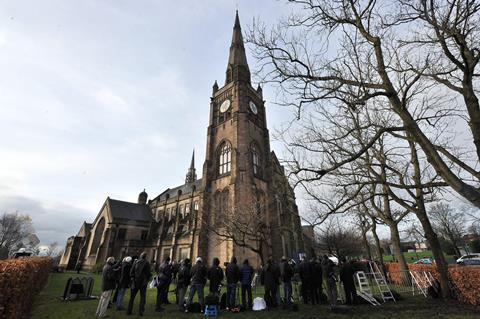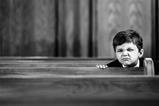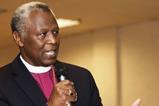While the Church is no stranger to misreporting, Tim Wyatt says a recent Spectator article was especially egregious

No doubt this is true of other niche specialisms, but a perennial bugbear of being a church journalist is that so much coverage of the church by the mainstream press is just embarrassingly wrong.
A lot of this is forgivable when it comes to trying to sum up tediously complicated theological disputes or navigate the medieval bureaucracy of an ancient denomination.
But sometimes it’s just out of ignorance and clumsiness.
Spectating from afar
I clicked on a link to a piece in The Spectator entitled ‘The End of the Church of England’ with some interest…And I got precisely to the bottom of the first paragraph before giving up in irritation.
The writer reports a conversation with a friend of theirs, a lapsed Anglican vicar who quit after losing his faith:
”He said what I have long suspected; that almost none of those in the hierarchy of the Church today believe in the central tenets of their faith: the divinity of Christ, the Virgin Birth, the Resurrection of the dead, the miracles of Jesus, the Trinity, Heaven and Hell, life after death, or even a benevolent God.”
Nope. Just not true. Objectively wrong. There are probably a handful of senior clerics in today’s CofE who are flat out atheists, who linger in the church out of an affection for its cultural milieu (or because they couldn’t get a job anywhere else) but no longer believe anything. A dean here, an archdeacon there, perhaps. But the suggestion that “the guardians of that faith are today little more than hollowed-out hypocrites going through the ritualistic motions” is ridiculous. The idea a large majority of the hierarchy of bishops don’t believe in Jesus, the resurrection, life after death or even the existence of God himself is laughable nonsense.
The idea a large majority of the hierarchy of bishops don’t believe in Jesus is laughable nonsense
In fact, many observers would note the House of Bishops is probably the most orthodox it has been in terms of creedal Christianity, since the Second World War. It is very long since out and proud liberals who delighted in junking vast swathes of established Christian belief rose up the ranks. This is in part because of the general winnowing away of nominal belief across the church, but also a product of how the church has changed and focused in recent decades.
You really cannot get very far beyond the grassroots parish level if you’re not able to demonstrate an interest in mission or an ability to talk about Jesus meaningfully. Most dioceses and certainly the national hierarchy have re-organised themselves around how to grow churches and share faith effectively with those beyond the walls of the CofE. If you cannot convincingly talk that talk and walk that walk, you will struggle to rise up the ranks.
A very possible projection
So, no, it is palpably untrue to suggest that “almost none” of the bishops still believe in God these days. Just go and talk to them and you’ll realise this. Log into the synod livestream and listen along.
Either the CofE is led by some of the most chillingly manipulative psychopaths around able to lie convincingly over decades (all so they get the privilege of sitting in on diocesan advisory committee meetings), or they are who they say they are - real, bona fide, believing Christians.
I would suggest this lapsed vicar’s belief is a classic example of what the psychologists like to call projection. Just because you spent years living a lie and pretending to lead people in worship of a God you thought was made up, doesn’t mean that the rest of us are too, mate.
And when you read a piece which begins with a statement about the church that is just humiliatingly, factually untrue, the only thing to do is log off and not waste the time reading the rest. So I still have no idea how the CofE is going to end.







































1 Reader's comment